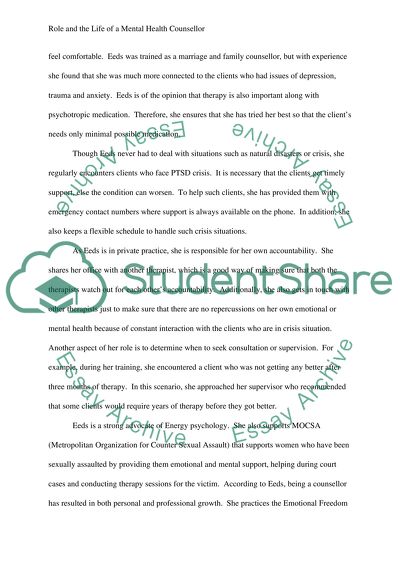Cite this document
(“The Role and Life of a Mental Health Counselor Term Paper”, n.d.)
The Role and Life of a Mental Health Counselor Term Paper. Retrieved from https://studentshare.org/psychology/1443151-the-role-and-life-of-a-mental-health-counselor
The Role and Life of a Mental Health Counselor Term Paper. Retrieved from https://studentshare.org/psychology/1443151-the-role-and-life-of-a-mental-health-counselor
(The Role and Life of a Mental Health Counselor Term Paper)
The Role and Life of a Mental Health Counselor Term Paper. https://studentshare.org/psychology/1443151-the-role-and-life-of-a-mental-health-counselor.
The Role and Life of a Mental Health Counselor Term Paper. https://studentshare.org/psychology/1443151-the-role-and-life-of-a-mental-health-counselor.
“The Role and Life of a Mental Health Counselor Term Paper”, n.d. https://studentshare.org/psychology/1443151-the-role-and-life-of-a-mental-health-counselor.


